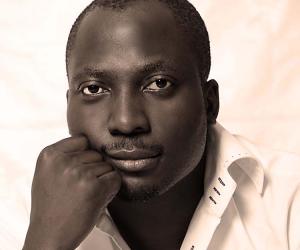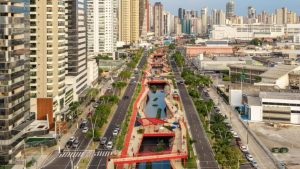“Working on Water” is the penultimate episode of the six-part Rebel Architecture series currently airing on Al Jazeera.
The series tracks architects who are working at the margins of society, the profession and in some cases even the law.
This episode follows architect Kunlé Adeyemi to Makoko, a sprawling water-borne slum on the fringes of Lagos, Nigeria.
According to Adeyemi, Makoko is an “extreme and powerful example of urbanisation in Africa” and the problems associated with it: large communities living in conditions of informality without some of the most basic infrastructure such as sanitation, water and electricity.
“My belief is [that] in developing Africa, we need to find solutions that can be developed by the grassroots, through the grassroots and achieve the same level of significance as we have on the high-end projects,” he explains.
Adeyemi developed a floating structure for the residents of Makoko that can contend with the tides and provide adequate space and better learning conditions for a local school.
The Makoko Floating School, which has been nominated for several design awards including Design of the Year, is a three-storey A-frame structure that provides a multi-use space, classrooms and a semi-enclosed workspace. The wooden structure floats on 250 recycled plastic barrels that allow it to rise and fall with the tide. It also uses renewable energy, recycles organic waste and harvests rainwater for use.
The Rebel Architecture episode also tracks Adeyemi as he travel 900km south of Lagos to Port Harcourt, where a government plan for waterfront development is threatening an existing community who have made their homes there for generations.
Here he works with the People Live Here campaign to develop the Chicoco media centre that houses a radio station – “to give a voice to the community”.
The design, which was developed in collaboration and consultation with the community, straddles both land and water as an amphibious structure that aims to be a beacon of hope and a shared multi-purpose space.
Adeyemi concludes: “My work embodies at least three important values. One – it solves a problem. Two – it is connected to the earth and the environment. Three – it should be transformative."








